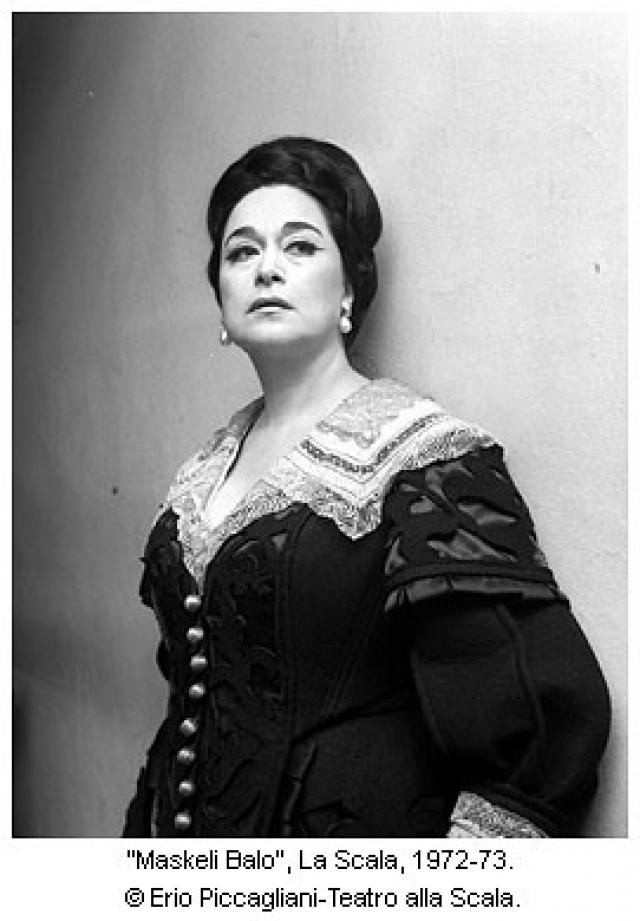Günün Mesajları
♪
Bir 24 Kasım günü çıktığımız yolda, uzun sayılabilecek bir yolculuğun ardından 20. yılımıza ulaştık. Sosyal Sorumluluk Projesi olarak üzerimize düşen sosyal sorumluluğu yerine getirerek, ilgi görerek, takdir toplayarak bugüne geldik.
Mavi Nota e-Müzik Gazetesi bugün 20. yaşını kutluyor.
editör - 24.11.2025
♪
Kültür bakanlığı sınavında. Ankara thm koro şefi kızını aldı. Urfa korusu şefi kayın biraderini aldı. İstanbul korosu şefi oğlu ve yeğenini aldı. ilginizi çekerse detay verebilirim
ttnet arena - 09.07.2024
♪
Cumhuriyetimizin kurucusu ulu önder Gazi Mustafa Kemal Atatürk ve silah arkadaşlarını saygı ve minnetle anarken, ülkemiz Türkiye Cumhuriyeti’nin kuruluşunun 100. yılını en coşkun ifadelerle kutluyoruz.
Mavi Nota - 28.10.2023
♪
Anadolu Güzel Sanatlar Liseleri Müzik Bölümlerinin Eğitim Programları Sorunları
Gülşah Sargın Kaptaş - 28.10.2023
♪
GEÇMİŞ OLSUN TÜRKİYE!
Mavi Nota - 07.02.2023
♪
30 yıl sonra karşılaşmak çok güzel Kurtuluş, teveccüh etmişsin çok teşekkür ederim. Nerelerdesin? Bilgi verirsen sevinirim, selamlar, sevgiler.
M.Semih Baylan - 08.01.2023
♪
Değerli Müfit hocama en içten sevgi saygılarımı iletin lütfen .Üniversite yıllarımda özel radyo yayıncılığı yaptım.1994 yılında derginin bu daldaki ödülüne layık görülmüştüm evde yıllar sonra plaketi buldum hadi bir internetten arayayım dediğimde ikinci büyük şoku yaşadım 1994 de verdiği ödülü değerli hocam arşivinde fotoğraf larımız ile yayınlamaya devam ediyor.ne büyük bir emek emeği geçen herkese en derin saygılarımı sunarım.Ne olur hocamın ellerinden benim için öpün.
Kurtuluş Çelebi - 07.01.2023
♪
18. yılımız kutlu olsun
Mavi Nota - 24.11.2022
♪
Biliyorum Cüneyt bey, yazımda da böyle bir şey demedim zaten.
editör - 20.11.2022
♪
sayın müfit bey bilgilerinizi kontrol edi 6440 sayılı cso kurulrş kanununda 4 b diye bir tanım yoktur
CÜNEYT BALKIZ - 15.11.2022
Tüm Mesajlar
Anket
Destekleyenlerimiz

Yazılar
Leyla Gencer: Operatic soprano idolised in ItalySayı: 1141 - 10.01.2011
 The Turkish soprano Leyla Gencer became one of the most loved and admired operatic idols in Italy during the Fifties, Sixties and Seventies. Although she sang all over Europe and America, from London to Vienna, from San Francisco to Buenos Aires, it was in Italy, at La Scala, Milan, at the San Carlo, Naples, at La Fenice, Venice, at the opera houses of Rome, Florence, Turin, Trieste and many other cities, that she spent the main part of her career, singing a very wide repertory whose core consisted of the works of Donizetti and Verdi. A singing actress of great expressive power, she used her voice as a weapon in her dramatic armoury. That did not mean that she could not, when appropriate, sing with great gentleness and beauty of tone.
The Turkish soprano Leyla Gencer became one of the most loved and admired operatic idols in Italy during the Fifties, Sixties and Seventies. Although she sang all over Europe and America, from London to Vienna, from San Francisco to Buenos Aires, it was in Italy, at La Scala, Milan, at the San Carlo, Naples, at La Fenice, Venice, at the opera houses of Rome, Florence, Turin, Trieste and many other cities, that she spent the main part of her career, singing a very wide repertory whose core consisted of the works of Donizetti and Verdi. A singing actress of great expressive power, she used her voice as a weapon in her dramatic armoury. That did not mean that she could not, when appropriate, sing with great gentleness and beauty of tone.She was born Leyla Ceyrekgil in Istanbul in 1924. Her father was Turkish, her mother Polish and she was educated at an Italian high school and liceo. She studied at the Ankara Conservatory with the Spanish coloratura Elvira de Hidalgo, and in 1946 married a banker, Ibrahim Gencer.
Leyla Gencer made her operatic début in 1950 in Ankara as Santuzza in Cavalleria rusticana. After further study with the Italian soprano Giannina Arangi-Lombardi and the baritone Apollo Granforte, she went to Italy, where she made her début in 1953 at the Arena Flegrea in Naples, again singing Santuzza. Later in the season she sang the title role of Madama Butterfly at the San Carlo.
In 1956 Gencer went to San Francisco, where she made her début in the title role of Zandonai's Francesca da Rimini. During the next two seasons she also sang the title role of Lucia di Lammermoor, Violetta in La traviata, Massenet's Manon, Gilda in Rigoletto and Elisabeth in Don Carlos. Elisabeth would become one of her finest Verdi roles, which she repeated with great success at La Scala (1960), the Vienna State Opera and at Covent Garden (1962), where she sang the role in an emergency when Gré Brouwenstijn became ill. Gencer was in London rehearsing Donna Anna in Don Giovanni, which should have been her début role.
Gencer first appeared at La Scala in 1957, singing Madame Lidoine, the new prioress, in the world premiere of Poulenc's Dialogues des Carmelites. Later that year she sang Leonora in La forza del destino, another favourite Verdi role that suited her passionate temperament extremely well. In 1958 she took part in another premiere, of Pizzetti's Assassinio nella Cattedrale, based on T.S. Eliot's Murder in the Cathedral, in which she sang the First Woman of Canterbury. The opera was conducted by Gianandrea Gavazzeni, who became a mentor to the soprano throughout her career. He conducted her as Maria in Pizzetti's Lo straniero (1969) in Naples.
Gencer sang two early Verdi roles, Lucrezia in I due Foscari in Venice (1957) and Lida in La battaglia di Legnano in Florence (1959) before returning to 20th-century opera with Renata in Prokofiev's The Fiery Angel at the 1959 Spoleto Festival. In 1960/61 she sang again at La Scala, as Paolina in Donizetti's Poliuto, taking over from Maria Callas, and as Lisa in Tchaikovsky's Queen of Spades. Her Lisa was an unexpected success, and she sang it again at Turin in 1963. Meanwhile she sang her first attempt at the title role of Bellini's Norma at Barcelona in 1962, repeating it the following season at the Coló*in Buenos Aires.
As related, Gencer made an emergency début at Govent Garden in Don Carlos in January 1962, before she sang Donna Anna in February in Franco Zeffirelli's new production of Don Giovanni. But Mozart was not one of Gencer's strongest suits: far better was Donizetti's Anna Bolena, which she sang at Glyndebourne in 1965, conducted by Gavazzeni. Anna was always one of Gencer's finest roles and even in 1977, not long before she retired, she gave a wonderful performance of it in Rome.
Otherwise, during the Sixties Gencer sang Elena in Jerusalem (the Paris version of Verdi's I Lombardi) and the title role of Bellini's Beatrice di Tenda at La Fenice in Venice; Queen Elizabeth I in Donizetti's Roberto Devereux in Naples; and Aida at La Scala and in the Verona Arena, where she was a great favourite. Gluck's Alceste was much applauded in Rome in 1967, even better liked at La Scala in 1968 and liked best of all at La Scala in1972, with Gavazzeni in the pit.
In the last decade of her career, Gencer had several new roles that were, vocally and dramatically, very well suited to her abilities. One of these was Ponchielli's La Gioconda, but one small point annoyed purists: Gioconda describes herself as blonde, but Gencer wore her own black hair. Another very popular role was the heroine of Donizetti's Maria Stuarda, which she first sang at the Florence Maggio musicale and then in Naples. Verdi's Lady Macbeth, which Gencer sang under Gavazzeni's baton in Venice, and later in Rome and Florence, scored even greater triumphs.
Other Donizetti roles in which Gencer was greatly admired included Lucrezia Borgia, which gave the soprano scope for every conceivable emotional expression. She sang it first in Naples, then in Rome, Bergamo, Dallas and Florence; Antonina in Belisario in Venice, Bergamo and Naples; Caterina Cornaro in Naples and Pauline in Les Martyrs (the Paris version of Poliuto) in Bergamo were all great rarities, very well sung.
But Gencer's finest performance in the Seventies was not in an opera by Donizetti, but in Mayr's Medea in Corinto in Naples. In very good voice she was, as always, totally involved in the drama going on around her.
*Leyla Ceyrekgil, opera singer: born Istanbul 10 October 1924; married 1946 Ibrahim Gencer (deceased); died Milan, Italy 9 May 2008.
http://www.independent.co.uk
Tavsiye Et ♫
Yorumlar
Bu yazıya henüz yorum yapılmadı.
Yorumları okumak yada yorum yazmak için sisteme giriniz.
